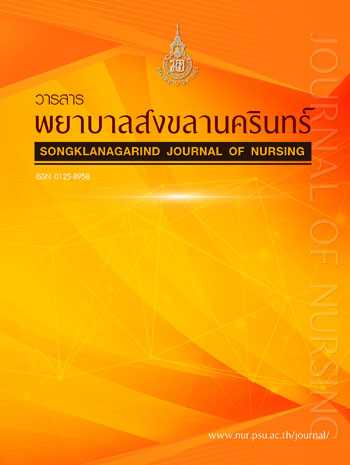Supportive Psychotherapy with Family Participation for Older Patients with Major Depressive Disorder
Main Article Content
บทคัดย่อ
In Thailand, the number of older patients with major depressive disorder was increased. In 2009, 2010, and 2011, the prevalence was 8.75%, 13.95%, and 14.95% respectively. Major depressive disorder is caused by bio-psychosocial factors and lacks of social and family support during times of poor health. Supportive psychotherapy with family participation is suitable for relieving emotional suffering including depression. This quasi-experimental research aimed to compare the depressive symptoms of older patients with major depressive disorder before and after receiving supportive psychotherapy with family participation. Thirty potential participants diagnosed with major depressive disorder, aged 60 years or older were recruited from the Out-Patient Department of the Institution. After matching characteristics of gender, age, and level of depressive symptoms and treatment, 15 participants were randomly assigned to each group, one experimental
and one control group. The experimental group received supportive psychotherapy with family participation, while the control group received only routine care. Data were collected through a personal questionnaire, the Hamilton Rating Scale for Depression, and the positive relationship level scale. All of the instruments were tested for validity and reliability. Reliability testing showed Cronbach’s alpha coefficient at .83. The data were analyzed using descriptive statistics and t-test.
The results showed that the depressive symptoms of the participants after receiving supportive psychotherapy with family participation were lower than before receiving supportive psychotherapy (t=8.79, p< 0.05). The depressive symptoms of the patients that received supportive psychotherapy with family participation were lower than those that only received routine care (t= -2.25, p< 0.05).


